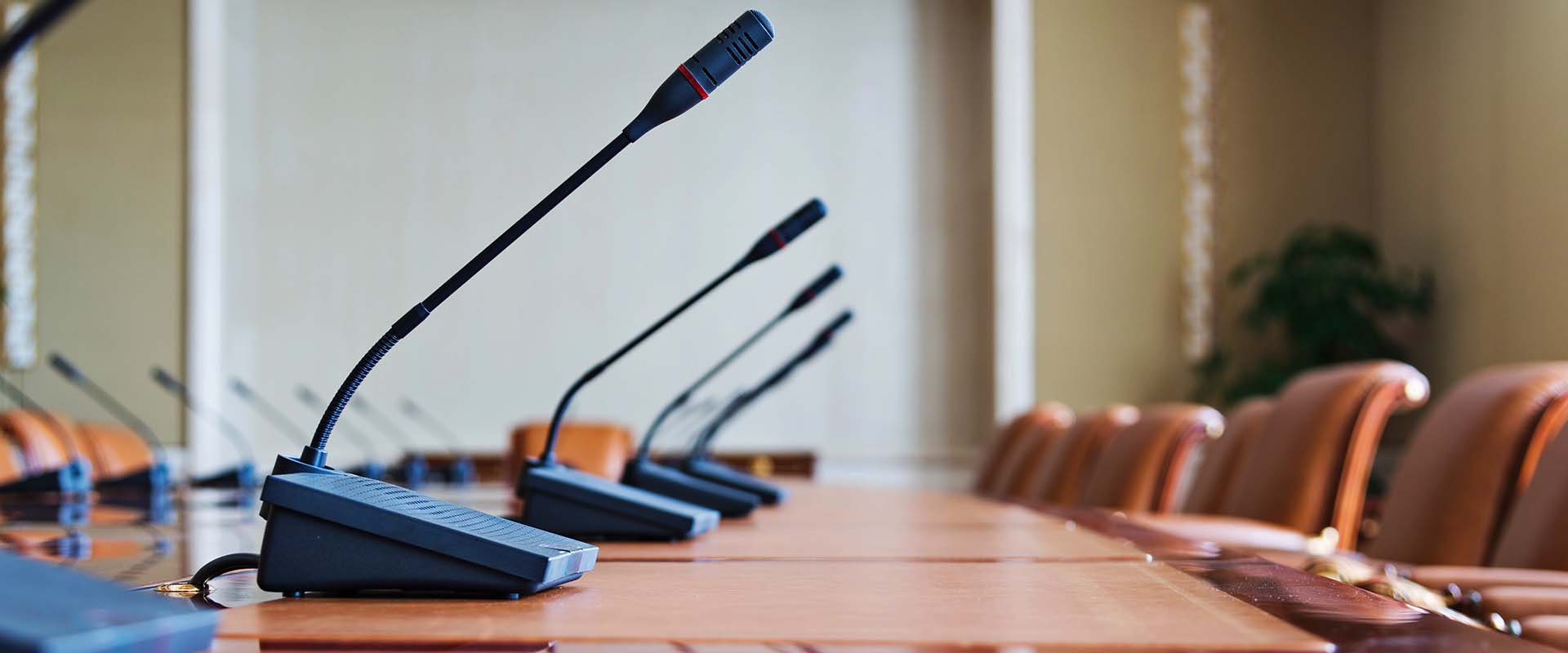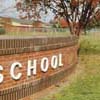California United States District Court finds that Prayers, Bible Readings, and Proselytizing at School Board Meetings Violated the U.S. Constitution

April 2016
Number 20
A United States District Court in California recently concluded that a school board unconstitutionally endorsed religion by reciting prayers, conducting Bible readings, proselytizing at board meetings and adopting a resolution allowing religious prayer at board meetings. (Freedom from Religion Found., Inc. v. Chino Valley Unified School Dist. Bd. of Ed. (C.D. Cal. Feb. 18, 2016) Case No. 5:14-cv-02336-JGB-DTB, 2016 U.S. Dist. Lexis 19995.) The Establishment Clause of the U.S. Constitution's First Amendment prohibits public entities from passing laws regarding an establishment of religion, which correspondingly bars government agencies from promoting or affiliating with any religious doctrine or organization. Unlike permissible prayer before certain legislative bodies' meetings, the District court in Freedom from Religion Foundation found prayer and proselytizing at school board meetings akin to prayer at school football games or graduations, which have previously been restricted or struck down by the courts.
In 2014, the Board of Education for the Chino Valley Unified School District adopted a resolution regarding invocations at board meetings and instituted several policies regarding delivery of invocations. Specifically, the board resolution allowed invocation or prayer to be offered at board meetings to "solemnize" the proceedings. A local clergy member or religious leader would be invited to deliver the invocation or prayer, but a board member or member of the audience could volunteer to deliver the prayer in the absence of a religious leader. The board could not review or preview the planned prayer and an invocational speaker could not be scheduled for more than three board meetings in a calendar year. The board resolution expressly stated it was not intended to express the board's preference for or affiliate with any faith or religious denomination.
At board meetings, however, various board members delivered the invocation, recited and read passages from the Bible, and made comments of a religious nature. Students were present at board meetings and attended as student representatives on the board, to give presentations, accept recognition for achievements, and at times for disciplinary reasons. Parents of and students enrolled in the District filed a lawsuit alleging that the District violated the Establishment Clause through its policy and practice of prayer at school board meetings.
As an initial matter, the court found that the plaintiffs suffered an injury because they attended board meetings where religious prayers were delivered and were offended. The merits of the case hinged on the characterization of board meeting prayers. The plaintiffs argued that the prayers were similar to prayer in public schools, which has been restricted by the courts under the U.S. Constitution. The District argued that school board prayer is subject to the "legislative prayer" exception, which under United States Supreme Court precedent permits for legislatures to open sessions with prayer. The court rejected the District's argument and found that the legislative prayer exemption does not apply because of student involvement in board meetings and the "distinct risk of coercing students to participate in, or at least acquiesce to, religious exercises in the public school context." Having made this finding, the court continued the required analysis regarding whether the board policy and its actions violated the U.S. Constitution.
The court analyzed whether the board's policy and practice: (1) had a secular purpose; and (2) had the effect of endorsing religion. The court noted that the stated purpose of the resolution was to "solemnize" board meetings. However, the statements of board members "cast serious doubt on the sincerity of the school board's articulated secular purpose." The court gave specific examples of "overtly religious, proselytizing statements" that raised serious questions about the motivation of the resolution. The court concluded that there were non-sectarian ways to solemnize board meetings, such as using inspirational words from American leaders. For those reasons, the court found that the District failed to show the resolution had a secular purpose. The court further concluded that the effect of the board's resolution was to promote Christianity. This conclusion was based on the opening prayers, Bible readings, and references to Jesus Christ by board members throughout the meetings.
Ultimately, the court ruled that the District's board violated the U.S. Constitution and ordered that the board members no longer permit or endorse school-sponsored prayer at school board meetings. The court also awarded the plaintiffs attorneys' fees and costs.
The time to appeal the court's ruling in Freedom from Religion Foundation has not yet expired and early indications are that the District will appeal. While the court's ruling is not binding on other California state or federal courts, it does signal how federal courts in California may address this issue if and when litigated. That is, decisions of federal district courts are not binding precedent for California state or federal courts, however, California state and federal courts may look to such decisions as persuasive authority. For these reasons, California school boards should be mindful of prayers at board meetings and the potential for liability. Please note that Freedom from Religion Foundation and its analysis is specific to school boards. For more information regarding prayer at city council and other public entity board meetings under the United States Supreme Court's opinion on point in Town of Greece, New York v. Galloway, (see Client News Brief No. 28, May 2014).
If your school district has any questions regarding the Freedom from Religion Foundation, Inc. opinion or the prayers or invocations at school board meetings in general, please contact one of our nine offices located statewide. You can also visit our website, follow us on Facebook or Twitter, or download our Client News Brief App.
Number 20
A United States District Court in California recently concluded that a school board unconstitutionally endorsed religion by reciting prayers, conducting Bible readings, proselytizing at board meetings and adopting a resolution allowing religious prayer at board meetings. (Freedom from Religion Found., Inc. v. Chino Valley Unified School Dist. Bd. of Ed. (C.D. Cal. Feb. 18, 2016) Case No. 5:14-cv-02336-JGB-DTB, 2016 U.S. Dist. Lexis 19995.) The Establishment Clause of the U.S. Constitution's First Amendment prohibits public entities from passing laws regarding an establishment of religion, which correspondingly bars government agencies from promoting or affiliating with any religious doctrine or organization. Unlike permissible prayer before certain legislative bodies' meetings, the District court in Freedom from Religion Foundation found prayer and proselytizing at school board meetings akin to prayer at school football games or graduations, which have previously been restricted or struck down by the courts.
In 2014, the Board of Education for the Chino Valley Unified School District adopted a resolution regarding invocations at board meetings and instituted several policies regarding delivery of invocations. Specifically, the board resolution allowed invocation or prayer to be offered at board meetings to "solemnize" the proceedings. A local clergy member or religious leader would be invited to deliver the invocation or prayer, but a board member or member of the audience could volunteer to deliver the prayer in the absence of a religious leader. The board could not review or preview the planned prayer and an invocational speaker could not be scheduled for more than three board meetings in a calendar year. The board resolution expressly stated it was not intended to express the board's preference for or affiliate with any faith or religious denomination.
At board meetings, however, various board members delivered the invocation, recited and read passages from the Bible, and made comments of a religious nature. Students were present at board meetings and attended as student representatives on the board, to give presentations, accept recognition for achievements, and at times for disciplinary reasons. Parents of and students enrolled in the District filed a lawsuit alleging that the District violated the Establishment Clause through its policy and practice of prayer at school board meetings.
As an initial matter, the court found that the plaintiffs suffered an injury because they attended board meetings where religious prayers were delivered and were offended. The merits of the case hinged on the characterization of board meeting prayers. The plaintiffs argued that the prayers were similar to prayer in public schools, which has been restricted by the courts under the U.S. Constitution. The District argued that school board prayer is subject to the "legislative prayer" exception, which under United States Supreme Court precedent permits for legislatures to open sessions with prayer. The court rejected the District's argument and found that the legislative prayer exemption does not apply because of student involvement in board meetings and the "distinct risk of coercing students to participate in, or at least acquiesce to, religious exercises in the public school context." Having made this finding, the court continued the required analysis regarding whether the board policy and its actions violated the U.S. Constitution.
The court analyzed whether the board's policy and practice: (1) had a secular purpose; and (2) had the effect of endorsing religion. The court noted that the stated purpose of the resolution was to "solemnize" board meetings. However, the statements of board members "cast serious doubt on the sincerity of the school board's articulated secular purpose." The court gave specific examples of "overtly religious, proselytizing statements" that raised serious questions about the motivation of the resolution. The court concluded that there were non-sectarian ways to solemnize board meetings, such as using inspirational words from American leaders. For those reasons, the court found that the District failed to show the resolution had a secular purpose. The court further concluded that the effect of the board's resolution was to promote Christianity. This conclusion was based on the opening prayers, Bible readings, and references to Jesus Christ by board members throughout the meetings.
Ultimately, the court ruled that the District's board violated the U.S. Constitution and ordered that the board members no longer permit or endorse school-sponsored prayer at school board meetings. The court also awarded the plaintiffs attorneys' fees and costs.
The time to appeal the court's ruling in Freedom from Religion Foundation has not yet expired and early indications are that the District will appeal. While the court's ruling is not binding on other California state or federal courts, it does signal how federal courts in California may address this issue if and when litigated. That is, decisions of federal district courts are not binding precedent for California state or federal courts, however, California state and federal courts may look to such decisions as persuasive authority. For these reasons, California school boards should be mindful of prayers at board meetings and the potential for liability. Please note that Freedom from Religion Foundation and its analysis is specific to school boards. For more information regarding prayer at city council and other public entity board meetings under the United States Supreme Court's opinion on point in Town of Greece, New York v. Galloway, (see Client News Brief No. 28, May 2014).
If your school district has any questions regarding the Freedom from Religion Foundation, Inc. opinion or the prayers or invocations at school board meetings in general, please contact one of our nine offices located statewide. You can also visit our website, follow us on Facebook or Twitter, or download our Client News Brief App.
As the information contained herein is necessarily general, its application to a particular set of facts and circumstances may vary. For this reason, this News Brief does not constitute legal advice. We recommend that you consult with your counsel prior to acting on the information contained herein.





